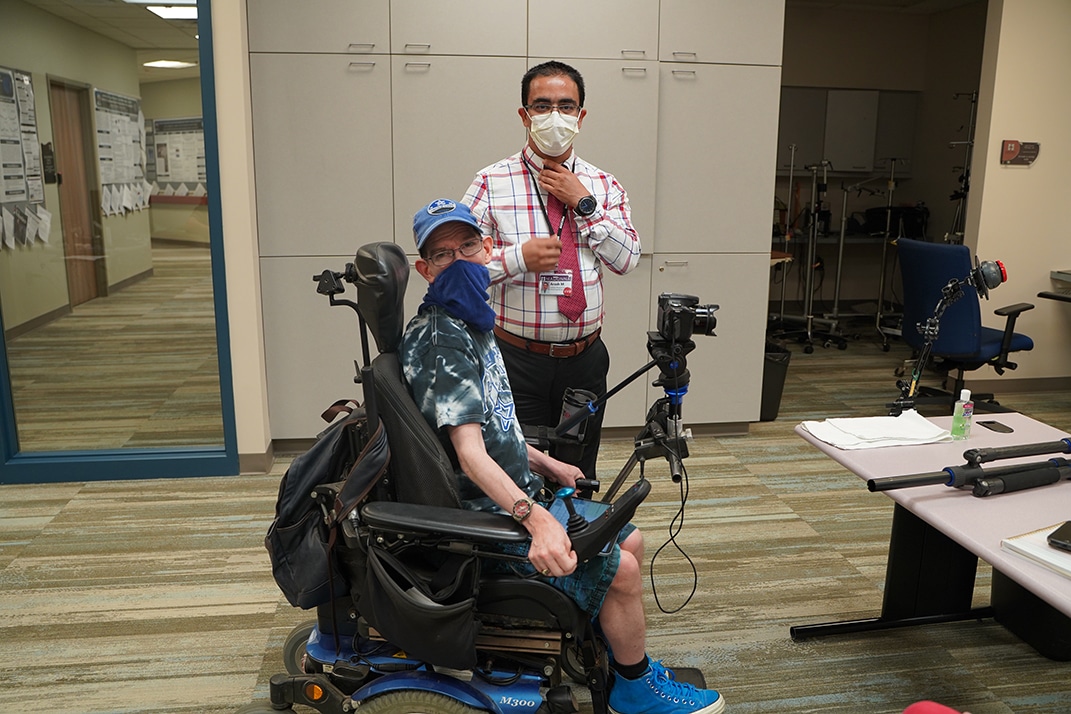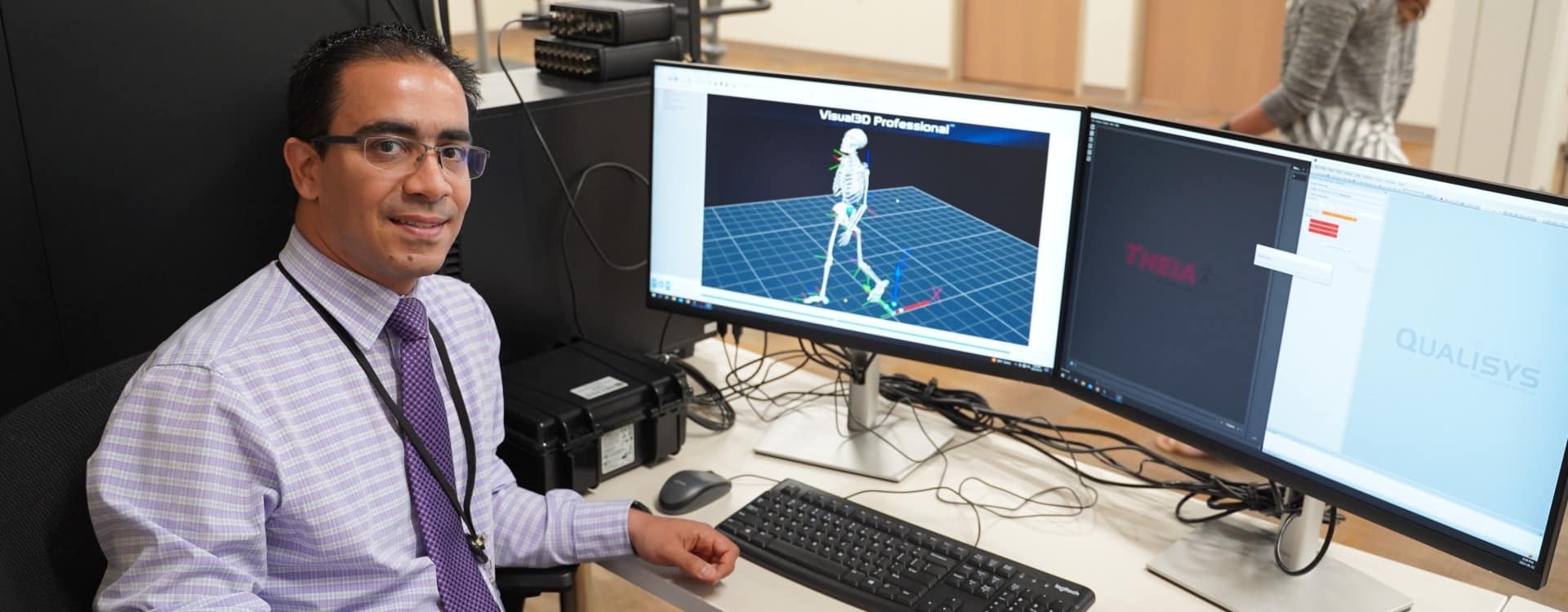Arash M. Gonabadi’s interest in learning how things work sparked in the fifth grade. “I liked to design new tools and devices,” he said. “I was able to fix some of the devices at home, including a hair dryer and space heater.” Growing up in Tehran, Iran, Gonabadi says being known as an innovative kid earned him interviews on local television and radio shows. Fast-forward to today, Gonabadi has honed his passion for machinery and robotics into a career halfway around the world that’s revolutionizing how patients experience independence after illness or injury.
Gonabadi has a Ph.D. in biomechanics and serves as the assistant research director of the Research Institute’s Rehabilitation Engineering Center at Madonna Rehabilitation Hospitals. Since 2020, he’s been working with research team members like Occupational Therapist Tabatha Sorenson, to create, design or modify custom devices, adaptations, and technology for adults and kids while they’re still undergoing inpatient rehabilitation.
After visiting with the patient to understand their need, the team collaboratively generates a design. Then, using a combination of tools, including in-house 3D printers and scanners—funded by generous Madonna donors—they can custom print key components for adaptations created. These prototypes are then tested by the patient and further refined until they are the perfect fit. While some inventions are incredibly complex, others are simple modifications to everyday tools that, for patients, make a world of difference. Like building a replacement tripod which allowed a photographer to continue pursuing his passion. Or making touchscreen technology easily accessible to patients with minimal use of their hands, creating a lifeline to the outside world. Even modifying a pink toy car to enable a child who experienced a spinal cord injury to cruise around the halls in time for her third birthday. “It empowers patients to be innovative, to participate in creative problem-solving, and to have access to equipment and expertise to bring an idea to life,” Tabatha Sorenson, OTD, OTR/L, ATP, CAPS, assistant technology professional, said.

Gonabadi received his bachelor’s and master’s degrees in mechanical engineering from the State University of Semnan, Iran. There, he stayed to complete doctoral studies in mechanical engineering and taught at the university level before setting his sights 6,700 miles away to join the biomechanics program at the University of Nebraska at Omaha. Completing his Ph.D. in 2022, his wealth of experience in modeling, design, analysis, and simulation of machinery is impressive. When combined with the newly gained knowledge working in the areas of assistive devices, human movement variability (gait analysis), robotics, and prosthesis, just to name a few, it is proving life-changing to the patients, clinicians, and colleagues he works with.
“The research team’s creativity, collaboration and collective expertise have been instrumental to advancing novel innovations that address many of the meaningful challenges our patients confront,” Judith Burnfield, Ph.D., PT, vice president of research and Institute director, said.
Gonabadi is glad his creations bring independence to those patients he works. His unique skill set, accomplishments, and the dozens of publications, books, patents, and research he’s been involved with have also earned him a special green card in the National Interest Waivers (NIW) category. As he and his family prepare to celebrate his inaugural Fourth of July as a permanent resident card holder, the holiday is that much more significant. “It reminds me that freedom is not free and has a great price,” Gonabadi said. “I see independence as an opportunity to plan for the future and think about ways to make this country better for everyone.”





